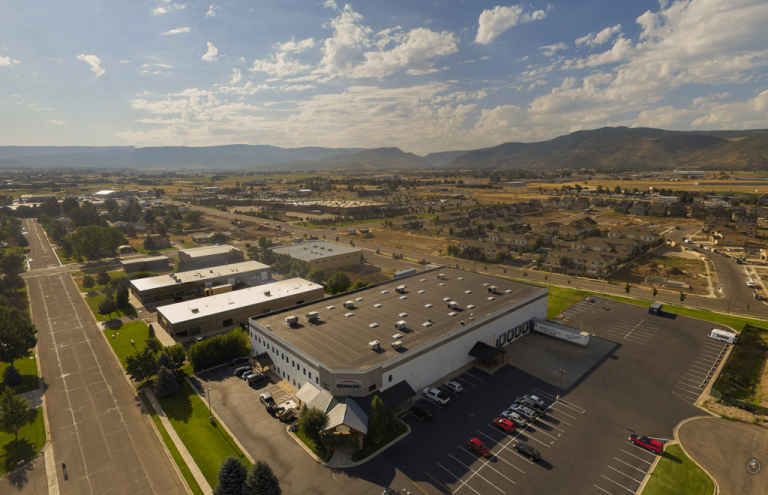By the salt of the earth
To be lauded in the press as being a “family-focused” business shouldn’t make a company’s C-suite cringe, but Darryl Bosshardt says that singular perspective sometimes “sets the wrong expectations” about Redmond Inc.’s equally-as-important focus on profit margin.
Darryl, Redmond’s director of marketing and business development, is the grandson of the company’s cofounder, Milo Bosshardt.
In 1958, Milo and his brother, Lamar, started a humble business selling salt that they harvested by hand from their Redmond, Utah farm property.
The ranchers who bought the natural and mineral-rich salt saw an increase in the health of their herds, and the business prospered.
What launched the enterprise to another level, however, was the recognized fact that Redmond salt worked better than other salts to deice roads, and the company began marketing highway deicing salt, now sold as Ice Slicer.
How Redmond Inc’s bottom line puts the community on top
Noted on the 2016 Forbes Best Small Companies in America list, Redmond Inc.’s 17 business units include Ice Slicer, Real Salt culinary salt, and Real Foods grocery stores. With the company’s decades-long growth came the need to relocate from the central Utah town of fewer than 800 residents.
Darryl grew up in Redmond, and he says that it was important within the organization to find a new place that allowed the company to both expand their labor market and satisfy their desire for a small-town feeling.
In 2005, Redmond Inc. established their corporate office in Heber City, which is double the size of Redmond, but still has only one zip code.
In Heber, Darryl says, it’s easier to express the organization’s mission, which is to “elevate the human experience” for customers, business partners, and employees; and to create a “knit-together company culture” within a small community—what Redmond calls “blending.”
The organization’s leadership is committed to a “lifetime of investment in relationships,” and endeavors to structure their corporate framework such that work and life holistically blend together rather than separating work life and home life.
“More often than not, people try to balance different compartmentalized areas of their lives, and the result creates stress,” Darryl explains. “We love when our associates’ kids can go to the same school or play on the same basketball team.”
Rather than hosting a fundraiser for, say, the high-school drill team, Redmond will sponsor a community event. They will then give event tickets to coworkers, often those who do not directly work together. The employees strengthen their work relationships outside of work, and also support the event by money spent while they’re enjoying, for example, the Heber Valley Cowboy Poetry Gathering.
The goal is to use funds to increase opportunity for connection. “We want to create an environment in which work can be a bigger part of life.”
“We like simplicity,” he asserts. “Our company was founded on simple values. We treat employees, customers, and partners like we want to be treated.”
To formalize learning the organization’s mindset, each Redmond employee participates in a year-long program in which they read books on leadership, watch TED talks, and learn the language and framework of the company’s values and culture.
“We continue to refine and define the principles related to ‘elevate the human experience,’ and we’ve gotten better at finding what works, what supports what we believe. We’re certainly not the brainchild of these ideas,” Darryl says, “but we’ve been a good sponge.”
“I feel fortunate to live in a capitalistic society,” Darryl says, “but because of capitalism’s drive for accomplishment and success, business is often perceived as a struggle, a fight. We just try to create the best products and be the best in a competitive environment. We’re a market-driven company,”
Then adds, “but something like watching the sack races in the local park helps to remind us that life is more important than just work. It’s easier to remember that in Heber.”
For more unique, one-of-a-kind stories from across the state, click HERE.






